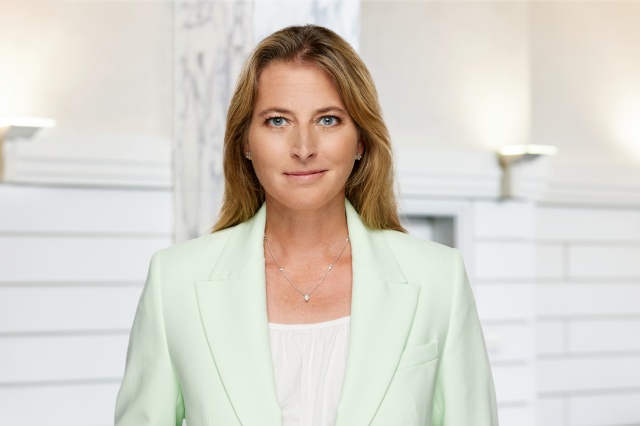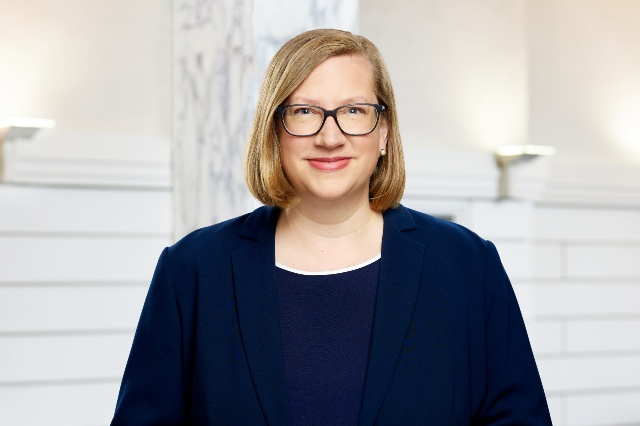Warburg Bank demonstrates stable earning power
- Satisfactory result achieved once again in 2015
- Close relationship with customers leads to increased earnings from commissions
- Regulatory requirements and interest rate situation unsatisfactory
The strategic focus of the Warburg Bank and its subsidiary institutions (Warburg Banking Group), as one of the few independent, private German banks that offers a comprehensive range of services for discerning customers, has proven successful despite the difficult market situation in 2015.
Joachim Olearius, spokesman for the partners: “In light of the challenging environment, in 2015 we achieved earnings in line with the times. As a result, we view the fiscal year as a successful one. With our services tailored to small and medium-sized enterprises, we fulfilled our duties as a universal bank and in doing so, served society well. Thanks to the hard work for our customers carried out by all of our employees, we were able to increase earnings from commissions and the volume of assets customers have placed in our care. We were able to limit the decline in interest earnings caused by low and even negative interest rates. The close relationship we have with each and every business partner forms the foundation of our success.“
2015 Fiscal Year in Figures
The Warburg Banking Group generated total earnings before taxes of EUR 29.3 million (previous year: 27.7 million). This slight increase in earnings was due to an improved operative result, since the year-over-year increase in total commissions to EUR 153.7 million (previous year: EUR 140.4 million) was able to compensate the slight year-over-year decline in interest earnings, which totaled EUR 76 million (previous year: EUR 80.1 million). Administrative costs increased from EUR 189.7 million in the previous year to EUR 201.9 million, whereby a major portion of this figure was caused by an increase in non-personnel expenses as a result of new regulatory requirements.
The Warburg Bank transferred a total of EUR 23.3 million (previous year: EUR 22.8 million) in profits to its parent company M.M.Warburg & CO Group (GmbH & Co.) KGaA (Warburg Group), a satisfactory amount for the shareholders.
The Warburg Bank’s equity capital resources led to a total capital ratio of 14.6% (previous year: 14.0%). The tier one capital ratio totals 11.1% (previous year: 11.2%). Liable equity at the end of the reporting period totaled EUR 372 million (EUR 365 million at the end of the previous year). As such, the Warburg Bank fulfills all regulatory capital requirements. Liable equity within the Warburg Banking Group increased to EUR 379 million (previous year: EUR 342 million).
The Warburg Banking Group’s total assets increased modestly at the end of the reporting period from EUR 7.94 billion in the previous year to EUR 8.26 billion.
From the Business Segments
In 2015, the number and volume of managed assets in the Private Banking segment was once again expanded. The majority of customers placed the responsibility for individual investing decisions in the hands of the bank within the scope of asset management. In this context, customers selected strategies with more risk due to central bank policy and the interest rate situation. But the bank also saw increased demand for advice in the field of securities, not least of which was the result of many banks no longer providing this service, which has become complex from an administrative perspective. With regard to investments in corporate assets, the focus of interest was once again on private and commercial real estate. The positive trend overall is bolstered by the bank providing advice that is not restricted by business policies or sales requirements.
Despite the extremely volatile capital market environment as well as a number of geopolitical unknowns, the Asset Management segment achieved above-average results in 2015 and operated successfully against the ongoing period of low interest rates. The key growth factors in this area continue to be an accurate economic forecast of the global economy, an investment strategy based on this forecast with diversified portfolios, as well as active management. The Warburg Banking Group’s capital management companies look back on a satisfactory 2015 fiscal year. Warburg Invest Germany managed a total of 128 portfolios with assets of EUR 6.6 billion (previous year: EUR 5.5 billion). Warburg Invest Luxembourg was able to increase the total volume of managed assets in the completed fiscal year by nearly 4% to over EUR 21 billion.
The Investment Banking segment with its Corporate Finance, Sales and Trading, and Relationship Management units contributed an above-average share toward the annual result in 2015.
In Corporate Finance, numerous customers received advice with regard to corporate actions, reorganizations, and divestitures (see the appendix “Corporate Finance 2015”). In addition to IPOs in the shipping and automotive sector, assistance was also provided to the insolvency administrator of a major company active in the field of renewable energy during the restructuring process. Several families were advised during the sale of their companies and furthered supported after the sale within the scope of private banking or family office services.
In the Sales and Trading unit, foreign exchange activities developed nicely, which in addition to foreign exchange trading primarily consisted of foreign exchange hedging activities for companies and institutional customers. The Bonds Sales department saw significant demand for fixed-interest securities from institutional customers.
The Equities department, which was restructured in the year before last, saw significantly positive growth in 2015. As such, the combination of equities analysis provided by Warburg Research GmbH and the advisory services for institutional equities investors (Institutional Sales – Equities) proved successful. The precision of the forecasts and recommendations by Warburg Research as well as the activities of the sales team are both highly appreciated and have received an award by independent institutes. The team of analysts topped the list of brokers for German stocks in the 2015 Thomson Reuters Starmine Awards.
Relationship Management is responsible for providing services to institutional customers, shipping companies, and correspondent banks, and has placed its focus is on acquiring new clients in addition to maintaining existing customer relationships. Since completing the project to restructure the Relationship Management unit, the extensive support provided to institutional customers in all major asset classes is now offered from one source. Within the scope of this reorganization, the Warburg Invest Deutschland’s sales unit was integrated into the Warburg Bank. This new configuration creates the freedom for further growth. The lending business (real estate, corporate, and shipping financing), which comprises a part of Relationship Management, played a significant role in bolstering interest earnings, despite the slight decline in lending volume in an environment which continues to be characterized by low interest rates.
The Subsidiary Banks, with their specialization in specific regions or areas of business, once again played a successful role in the Warburg Banking Group’s overall result.
At the end of the previous year, the Warburg Bank sold the lion’s share of its interest in the former Warburg-Henderson to HIH Real Estate GmbH (HIH Group). This company, with a shareholder base similar to that of the Warburg Banking Group, offers a wide range and depth of services in the real estate industry.
After the withdrawal of Henderson Global Investors, the business will now continue to operate within the HIH Group as Warburg-HIH Invest Real Estate GmbH. As such, its employees (167 in December 2015) and the assets managed by the company (2015: EUR 12.3 billion) are no longer a part of the Warburg Group, but a part of the HIH Group. Despite not including this figure in the Warburg Group’s total, assets managed by the Warburg Group grew to 51 billion, since the group successfully increased customer assets in management.
The number of employees in the Warburg Group also only declined as a result of the transfer of Warburg-Henderson. At the end of the reporting period, the group had a total of 1,201 employees (previous year: 1,296).
In the summer of 2015, W&Z FinTech GmbH was founded as a subsidiary of the Warburg Bank for the purpose of developing digital concepts for private customers. Here a web application provides an total assets overview of accounts and portfolios at different banks and for differing asset classes. In addition, users are offered high-quality investment information as well as access to exclusive products and services. The goal is to account for people’s changing habits with regard to smartphones and other mobile devices and offer users some of the “private bank experience” when they are out and about.
Joachim Olearius believes that enhancing this offering is extremely important: “We have advised a number of startups in recent years, so it made sense that we would found our own FinTech company. Customers in the private banking segment will soon view an extensive range of digital services as something that goes without saying. We view the associated transparency with regard to the services offered positively. Furthermore, this will make select products and services offered by our private bank digitally accessible to much wider range of potential customers.”
Outlook
In Europe the low and/or negative interest rate environment is taking a deeper hold and as a result, banks, as well as investors which serve the public good, such as corporate pension funds, professional pension funds, foundations, and religious institutions, are all facing significant challenges. For the financial world, this trend means ongoing pressure on interest earnings.
At the same time, banks face another issue – public opinion of business is increasingly based on changing moral categories as opposed to whether laws were broken or not. But in order to identify economic risks and legal liability, companies need to adhere to principles and procedures in line with the rule of law, otherwise decisions are purely arbitrary. This particularly applies to issues discussed within the scope of reporting on cum/ex trades and offshore companies. Sweeping categorizations or premature judgments are not constructive in this context, since the economy needs liquid markets that transcend national borders. Reliable rules and consistent application of the law by governments are the prerequisite for maintaining functional markets.
In early 2016, media outlets reported on the Warburg Bank in relation to securities transactions dealing with ex-dividend dates. After an in-depth internal review of the matter, the bank can maintain its position that it acted in accordance with applicable law. In the event of a judgement which deviates from the bank’s position, the bank has a sufficient number of ways to react.
In addition to the aforementioned earnings pressure, the undifferentiated regulation has not only triggered cost increases, particularly for small and medium-sized banks, but also means banks must fulfill stringent capital requirements. Its diversified business with different sources of income as well as the stable and effective shareholder base allow the Warburg Banking Group to meet these capital requirements in the future as well. Nevertheless, equity is an increasingly scarce good, which means that the company is not pursuing an expansion of its lending business beyond its own balance sheet. The Warburg Banking Group will maintain its flexibility, however, and take advantage of attractive opportunities wherever they may lie – including in the field of lending.
Business which does not affect total assets has become even more important. Consulting services in the field of investment banking will in the future continue to be a key pillar upon which earnings from commissions is based. Stable earnings are generated in private banking as well as asset management, which also includes services provided by the Warburg Group’s asset management companies. The further increasing value of customer assets is not only evidence of their profound trust but also makes it possible to offer a wide range of services at the level of quality they have come to expect. We plan to maintain the Warburg Bank’s long-established expertise in the shipping business. The withdrawal of many competitors from this area of business unlocks new opportunities. Similarly, digitalization also brings opportunities at many points in the value chain to not only cut costs, but also expand business models. In recent years, the Warburg Banking Group has concentrated administrative work at a central location and employs as many people as possible in local regions who maintain direct relationships with customers. We will continue this successful strategy while keeping a focus on the high quality and personalized service for our customers.


